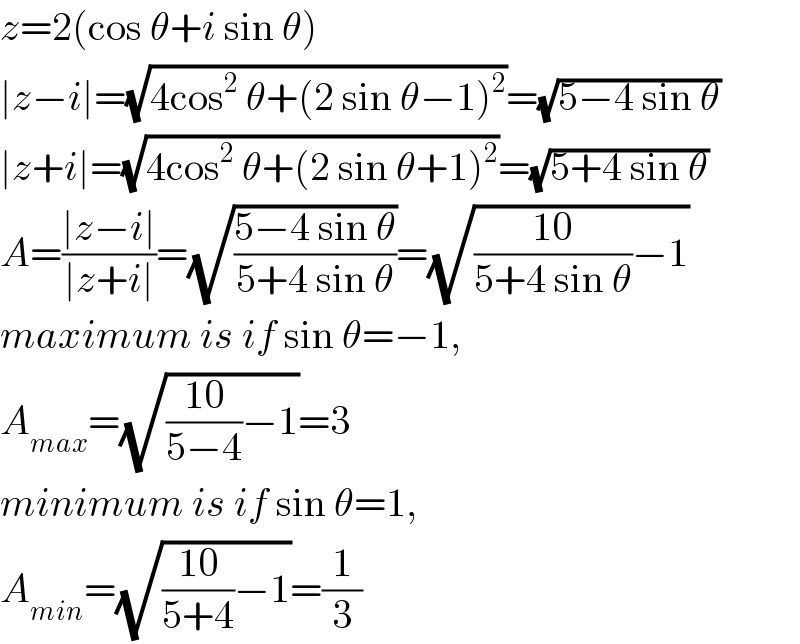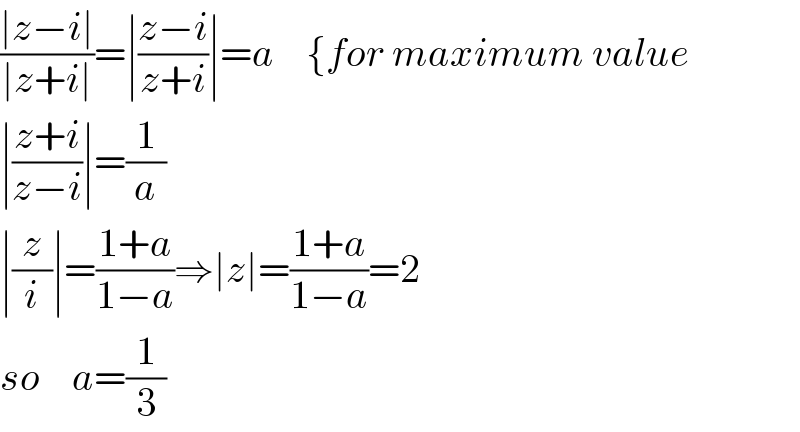
Question and Answers Forum
Question Number 102598 by dw last updated on 10/Jul/20

Answered by mr W last updated on 10/Jul/20

Answered by Dwaipayan Shikari last updated on 10/Jul/20

| ||
Question and Answers Forum | ||
Question Number 102598 by dw last updated on 10/Jul/20 | ||
 | ||
Answered by mr W last updated on 10/Jul/20 | ||
 | ||
| ||
Answered by Dwaipayan Shikari last updated on 10/Jul/20 | ||
 | ||
| ||